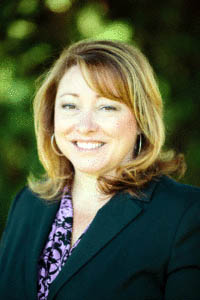Your Insurance … with Michele Campbell – Get help in understanding your Medicare health and drug plans
Published in the May 16 – 29, 2018 issue of Gilroy Life

Michele Campbell
Medicare Special Enrollment Periods occur all year long and for various reasons.
Most Gilroy residents don’t realize why these occur and the rules around them. There are several reasons why one gets a special enrollment period some of which are as follows:
- Either moving out of state or just over a county line;
- Retiring and losing an employer group plan;
- Voluntarily or involuntarily leaving an employer group plan, union plan or retiree plan;
- Moving in or out of an institution (nursing home);
- Qualifying for MediCal or losing qualification for MediCal;
- Getting Part D Extra Help; and many more.
The best thing to do if you are eligible for Medicare and/or have questions about whether you qualify for one of these periods, is to reach out and ask someone who knows, like Medicare or an insurance agent who understands the Medicare rules.
Do you qualify for Low Income Subsidy or Part D Extra Help?
If you have limited income and resources, you may qualify to get help to pay for the Medicare Part B premium and/or you could save money in the following areas: reduce your drug copays and waive your deductible on your Part D plan (prescription drug plan) or the Part D portion of your Medicare Advantage health plan.
If you qualify for Part D Extra Help, then you also have a year-round open enrollment period, which allows you to enroll into a different drug plan or Medicare Advantage plan that has drug coverage.
Check with Medicare or a local agent to see if you qualify.
The Secret to Getting a Pharmacy Discount with Medicare
If you take numerous medications, such as those for diabetes, high blood pressure, and high cholesterol, you could reach the coverage gap or “donut hole,” the point at which you could have higher out of pocket costs.
In 2018, once you and your prescription drug plan together have spent $3,750 on medications, you reach the coverage gap, also known as the “Donut Hole.”
At this time you will have to pay a larger share of the drug costs, 35 percent coinsurance for brand name drugs and 44 percent for generic prescription drugs. That’s when it’s time to start to shop around for discounts.
Many drug stores offer savings programs for people who pay for prescription medications out of pocket; in some cases, the pharmacy discount price is cheaper than the insurance co-pay. Some medications are older generic medications, which discount programs offer at very low costs, often less than $10. Once you hit the coverage gap, it’s often cheaper not to go through insurance and just find a good discount.
What could be confusing to a consumer with Medicare is that, CMS’ rules require a pharmacist to automatically use your drug Part D insurance unless you specifically say not to.
Bottom line: Most drug stores will let people with Medicare use their discount program, but you’ll have to ask.
If you need any help in understanding your Medicare health plan or your prescription drug plan, or you’re not sure if you’re on the best plan for you, feel free to reach out to us at Michele Campbell Insurance Services, (408) 848-2271.
- Your Medicare … with Michele Campbell: It’s important to understand the details of Medicare enrollment periods - August 9, 2023
- Your Insurance … with Michele Campbell: Are you retiring or new to Medicare? - December 14, 2022
- Your Medicare … with Michele Campbell: Open enrollment is coming soon - September 23, 2022
